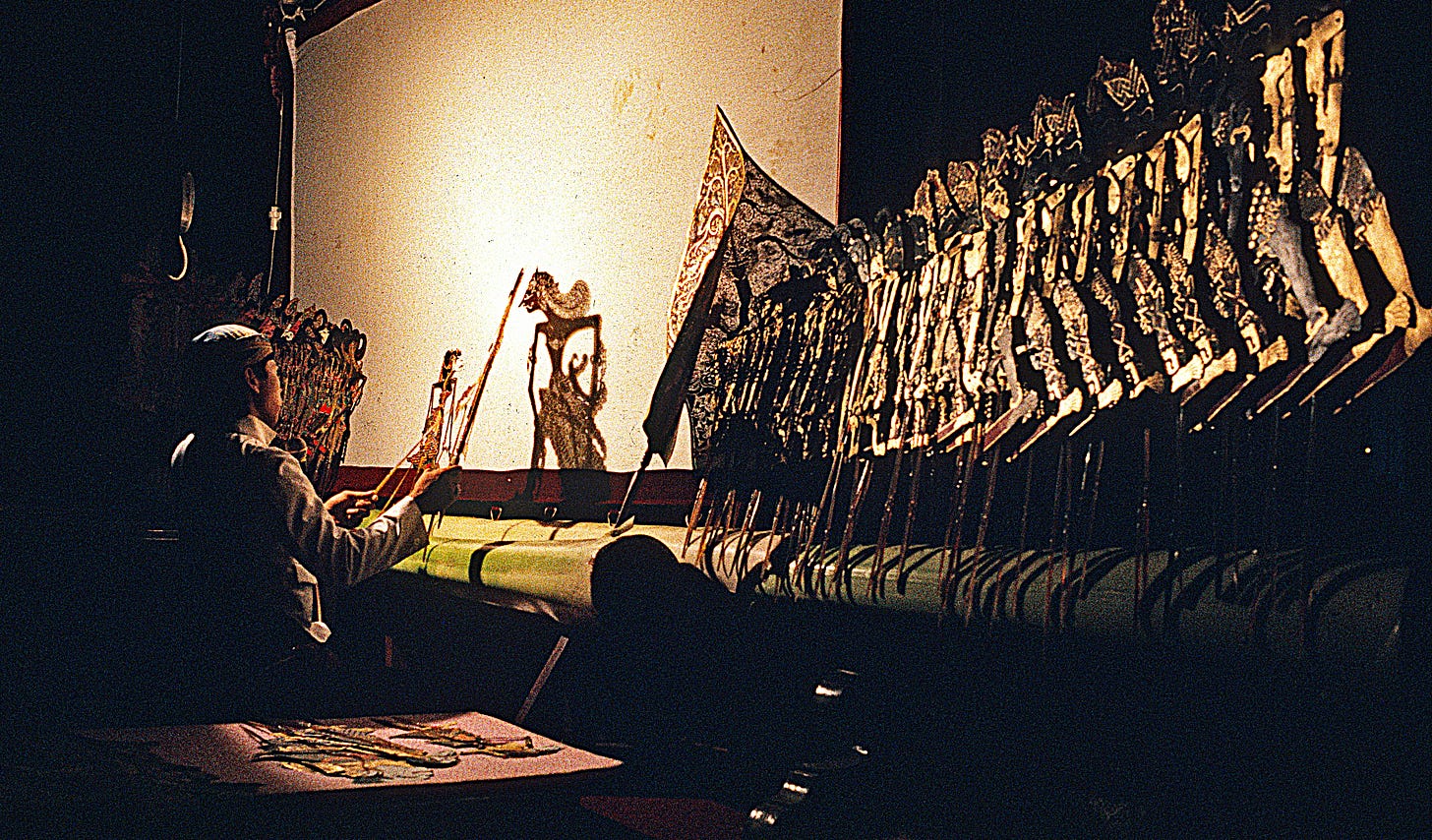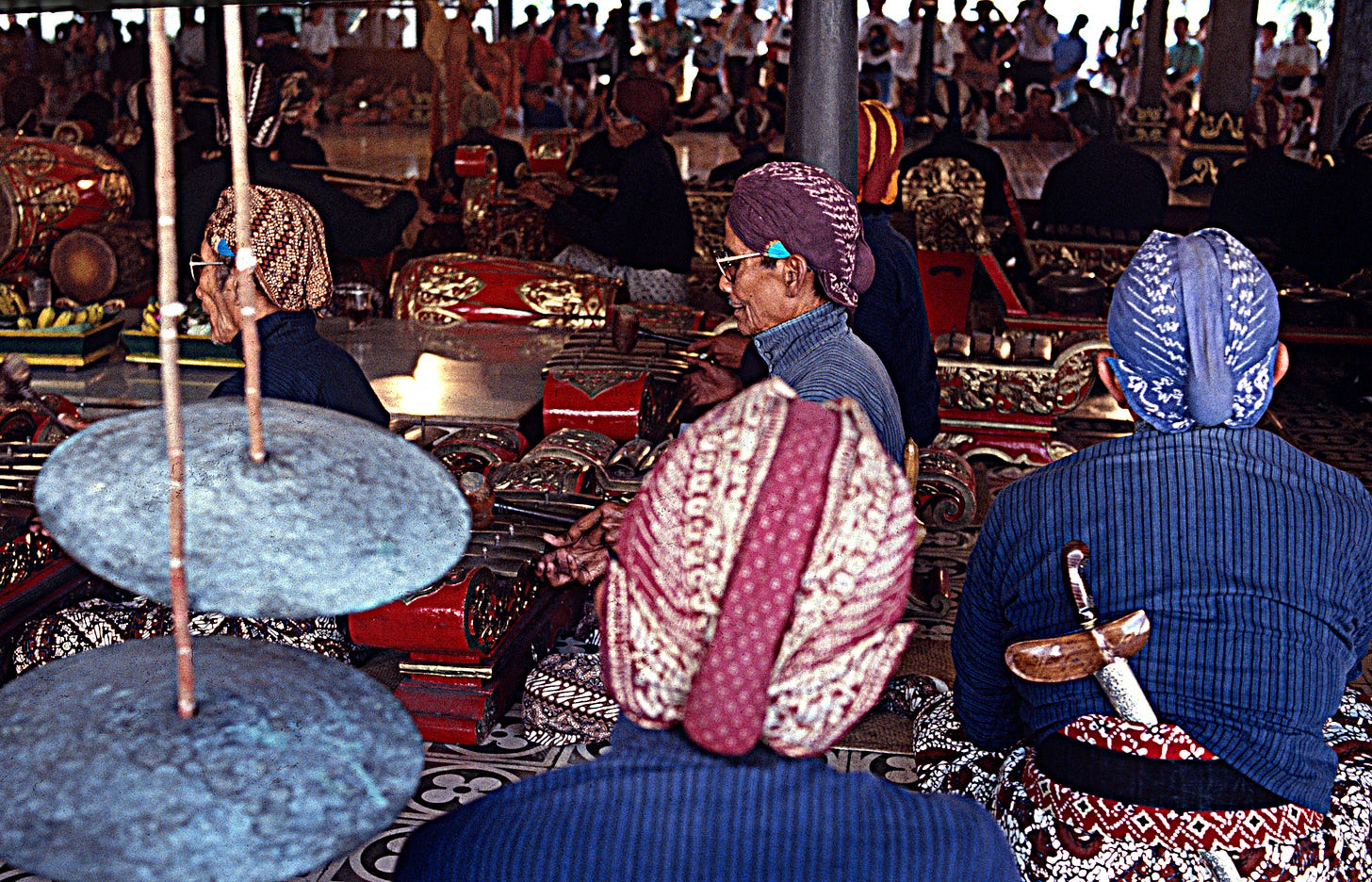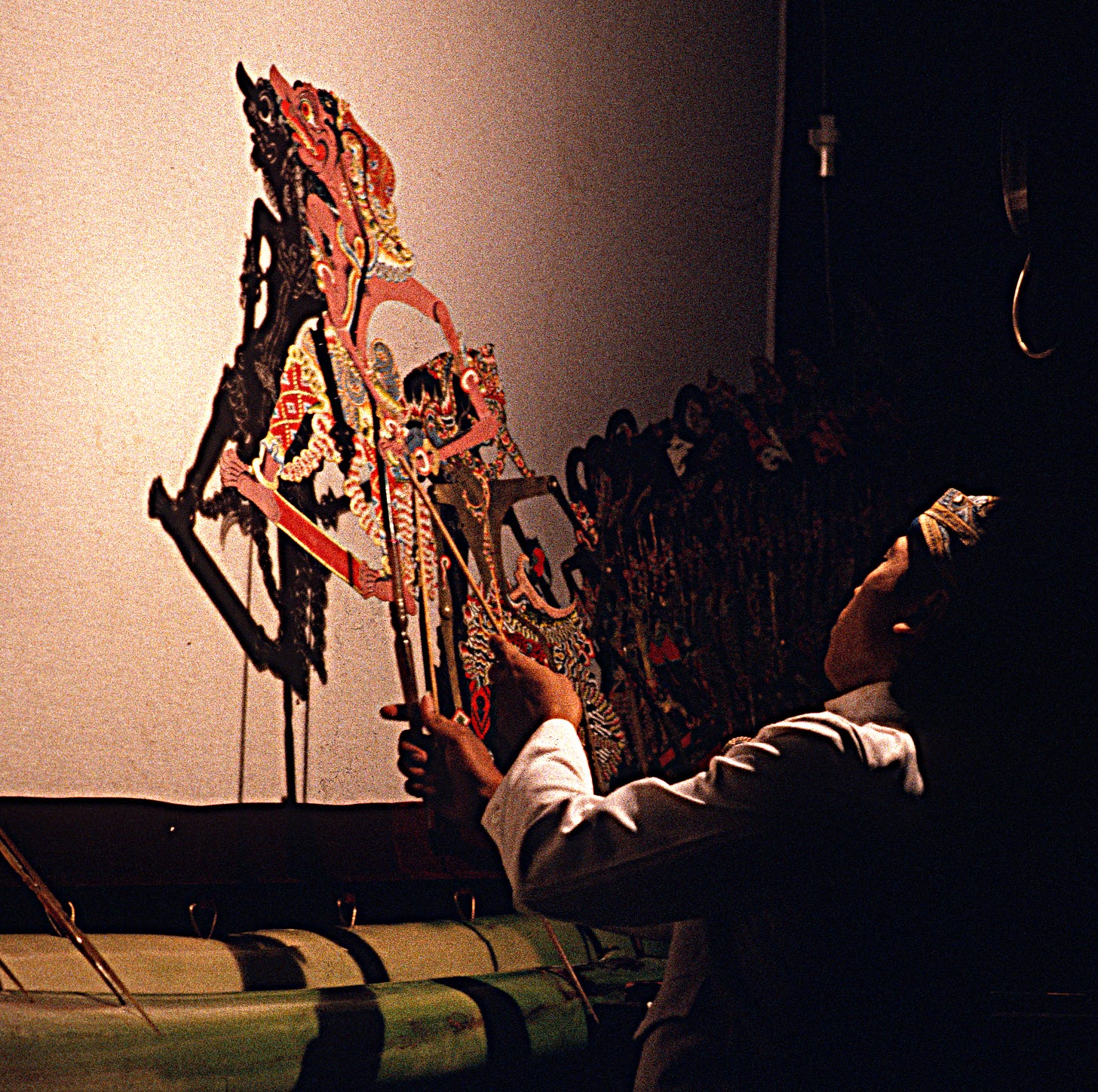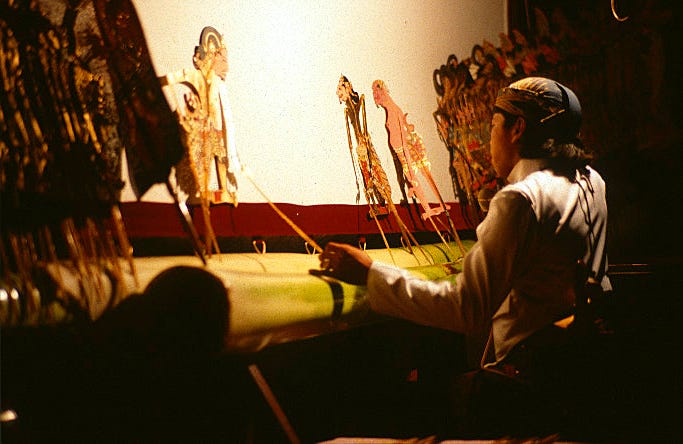The Greatest Performance Ever
November 2024 Comedian, Conan O'Brien, is announced as the host for the 97th Academy Awards ceremony in Hollywood. It is reported to be "the night when the world's greatest performances are recognised and rewarded".
I lean back in my chair and scan the rows of old notebooks. A memory has been triggered. Then I spot it. Indonesia 1992.
On the boat out to Krakatoa I meet Neil from the Shetland Isles. Before leaving on his marathon world tour, Neil had never left Shetland, so he tells me. Now he is gorging himself on experiences with a disarming wide-eyed naïvete that is backed up by some impressive freckled Scottish brawn. In every country that he has visited so far, he tells me, he has fallen in love and been beaten up.
"By the same person?" I ask.
Neil roars with laughter. He is a modern-day Candide, a wide-eyed ingenue, endearingly innocent, reckless and impetuous in equal measures. In Thailand he was bitten on the bum by a street dog, so dropped his trousers and checked the damage in a shop window. "I could've catched rabies, man!"
In China he got food poisoning and was taken to hospital where they tried to inject him with a blue fluid. He grabbed the syringe, threw it out the window and ran away, pursued by security guards. In New Zealand he was badly beaten by a Maori gang.
"All this is blowing ma' mind," he shouts, gesturing at the rolling swell of the Sunda Straits. "How can I ever go back to Shetland?"
We hold tight to the boat, a little fishing vessel that is making hard going of this crossing. Looking ahead I catch sight of the menacing blackened fragments of Krakatoa's ripped up crater wall. They rear up above the horizon, then plunge back into the grey water. This voyage is far wilder and rougher than anything I expected. I need to keep an eye on the horizon for the sake of my stomach.
When the 2,800-foot mountain of Krakatoa exploded on August 27, 1883, it did so with the power of 13,000 Hiroshima atom bombs, sending a tsunami across the world and killing around 36,000 people. The noise was heard almost 3,000 miles away on Rodrigues Island near Mauritius. An estimated 25 km3 of rock was suddenly flung into the air and Krakatoa, once an inhabited and forested island, vanished, except for a few craggy fragments, broken shards of the volcanic rim.
We chug up to a gap between two of these fragments and enter calmer waters. This large lagoon, however, contains a new island, Anak Krakatoa, 'Baby Krakatoa'. This steep-sided cone of dark grey ash suddenly appeared in 1928 and has subsequently grown to about 600 feet in height.
Our boatman will not risk his keel on the hard pumice beach so we jump out and wade ashore. The black beach is hot, from the sun we all assume. In fact, unknown to everyone, Anak Krakatoa is about to erupt. Climbing to a ridge we find a crater below us, then circle to the left to the highest point. Oblivious to the dangers, I go down and cross the crater floor, surrounded by sulphurous gases and heat. There is no path or footprints and I start imagining that the crust will suddenly give way.
When we get back to the black beach, we have to swim out to the boat. The sailor is frowning. Behind us a small puff of grey ash has appeared above the cone. We are not to know, but we have narrowly missed disaster. A few days later Anak Krakatoa blows, killing an American traveller and severely injuring the rest of her group.
Neil settles down on the rear deck with a book in his hand. "D'ye read these things, Kevin?"
"You mean books?" I crane my neck to see that he's got a battered paperback copy of Papillon, Henri Charières 1969 account of his time on another wild island, Devil’s Island off the coast of French Guiana.
Neil shakes his head in amazement. "I never finished a single book in my life, but I cannae put this thing down. It's taken me three months and I’m nearly there. Travelling is amazing - the stuff you do. Fucking incredible."
A week later I climb the volcano Merapi near Yogjakarta, then travel to Surakarta. I'm now with my family and one night, walking in the streets with my daughter Caitlin (aged 3), we chance upon a wayang kulit performance, the shadow puppet theatre.
We are both immediately entranced. One character crouches and Caitlin declares, very loudly, "Look Dad! That pumpet is skiing!" She's jumping up and down, unable to sit still. Then when the singer embarks on a banshee-like screech, Caitlin joins in, causing great hilarity in the audience. One woman makes a grab at her long red hair, but Caitlin has previous experience of such attacks and bats the hand away. "Get off me, Lady!" The woman retreats.
At the hotel they listen to Caitlin telling them about the 'pumpets' and inform me that there will be a big performance tonight. Wayang kulit, they tell me, is undergoing a renaissance with new puppeteers who tackle modern themes and make crude jokes. "Sometimes they even mention pubic hair!" says the guesthouse boy, and tries to translate the joke but fails, dissolving into laughter. They all agree that these new puppet-masters are superstars all across Java.
Shortly before sunset, Caitlin and I find the location inside the kraton, the old royal palace. The first sign is all the carts selling snacks and cigarettes, each with a little oil lamp. The rickshaw riders are standing on their saddles for a better view. Caitlin and I weave our way through an audience of about two thousand, all sitting cross-legged on the floor. Caitlin's red hair parts the crowd like Moses's rod. At the front are two white cloth screens, one of which is brightly lit and the shadows of the puppets are already leaping around, strange insect-like images, twitching, pouncing, scuttling. Sitting close to them, concentrating hard on the action, are rows of kids with flasks of water and sarongs, ready for a long night. Caitlin and I sneak in among them. This will continue for hours. Between the screens are the singers, seven women all kneeling, each dressed in a tight sarong with bosom-hoisting corset and hair coiled in a neat black bun. Their lips are painted into a perfect pout.
The crowd can sit either side of the screens. Out front, you get total immersion into the story. Behind, and you are with the gamelan orchestra and puppeteers who are frenetically operating the leather figures. Sitting cross-legged, in a white jacket, the dalang, or puppet-master, can operate several figures at once. A vital accessory is the trunk of a banana tree laid horizontally by his knees. Into it he can quickly discard a puppet, burying the supporting stick in the soft, firm flesh.
On screen at the moment are two comic characters: Cangik, the lantern-jawed beanpole, and his sidekick, Bagong, a lumbering buffoon who likes to dance to rock music (the gamelan orchestra, armed only with gongs, cymbals and drums do a good impersonation of Led Zeppelin). The crowd are howling with laughter - must've been the pubic hair joke.
Now the scene changes and the seven ladies sing. Their voices are like honey and lemon, both bitter and sweet, and the melodies insinuate themselves into the action like smoke. But the orchestra is building up power and the onscreen mood is shifting, becoming dangerous. The orchestra has no written music, a man behind me explains in a whisper in my ear, they respond only to the action onscreen and each other. He chuckles. "It's jazz."
A fight breaks out. I'm watching the puppet-masters, the dalang, who are moving so fast it becomes blur: kung fu moves, stabs, a haymaker, a blistering fast interchange of punches and kicks. Then they grab an assortment of weapons. Someone hides behind a leaf, leaps out and joins the fray, delivering a thundering uppercut to a puppet that is thrown high in the air, spinning around and around. The lights snap out. Total darkness for only an instant, then crunch. Lights on. Different screen. And the puppet comes spinning out the darkness into the hand of a different puppet-master. Fight continues. Orchestra, sweating, reaching a wild crescendo. The crowd going wild. Utter mayhem.
At the guesthouse next day, I rhapsodise about the performance. The houseboy is thrilled. The owner is moved to say: "You like to meet famous dalang?"
It turns out that one of the great new breed of puppet-masters, Anom Suroto, lives in Solo. In Java he is like a multi-Oscar-winning Hollywood star. The guesthouse owner pops around the corner and asks. We are invited.
The house is down an ordinary street and looks unprepossessing from the outside. Inside it is all marble and carved wood panels with a vast reception room furnished in Louis XV style: gilded rococo chairs with red velvet upholstery, a vast glittering chandelier and a beautifully painted ceiling. Anom is short and burly with a rich husky voice. He asks if I saw his younger brother, Warseno, performing at the kraton last night.
"The dalang is the keeper of Javanese culture," he tells me, "And wayang kulit is like bread or water to us - we must have it."
We go through to a music room and some of his children appear and start playing the gamelan. "We have several types of stories," Anom tells me. "Some have Arab origins, others come from old Javanese, there's the Mahabharata, and the epic poetry of Ranggawarsita."
He starts playing the drums. "Each story builds through three phases to a climax at midnight, but no two nights are ever the same - there is a lot that is spontaneous."
His son, who is eight, grabs a handful of puppets from where they wait in a section of banana trunk. An impromptu performance begins. "My father taught me and I am teaching him," Anom says proudly.
Caitlin and I join in, banging the gamelan gongs. It's all great fun, but eventually there is an interruption. Someone is here to remind Anom that he is scheduled to meet an important government minister.
We make out excuses and head for the door. We are talking about the possibility that wayang kulit might catch on and be popular elsewhere in the world. I'm optimistic: the sheer spectacle with all its colour and movement, the wild music and dexterity of the puppet-master - who could not like it?
But Anom is less hopeful. "I did a concert in London once," he says as we leave, "It did not go well."
I experience a moment of anxiety. Has my native country failed yet again? A racist incident, perhaps, or simply a complete lack of interest, an empty theatre?
But no, it was nothing like that. It was much worse. Anom shakes his head sadly. "I am afraid they were unable to provide a banana tree."






Loved reading that Kevin! Hope you are keeping well